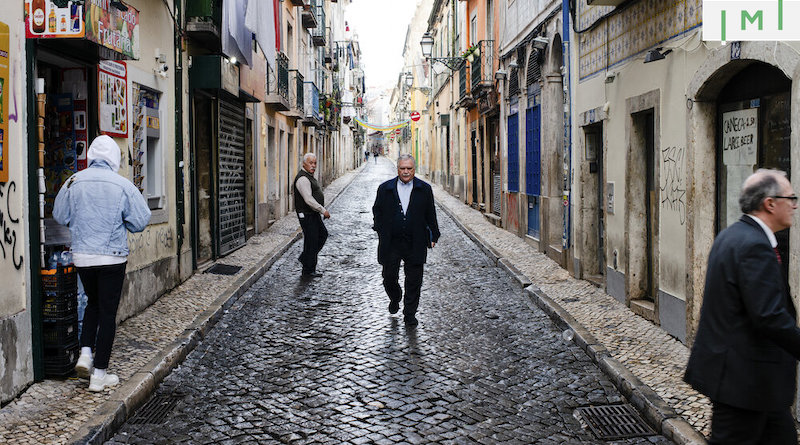63 Portugal Golden Visa Investors Have Sued Govt. Over Delays: 18 Have Won So Far
In August last year, we reported on the first publicly known case of a golden visa investor successfully suing the Portuguese government – specifically the Ministry of Internal Affairs and the Portuguese Immigration and Borders Service (SEF) – over excessive wait times: The Administrative Court of the Lisbon Circle ruled that the must SEF grant the investor, represented by Bettino Zanini of Lexidy Law, an appointment within ten days, presuming all was in order with the application.
Questioned, at the time, as to whether the decision could open the floodgates for further lawsuits from the thousands of other investors in the same situation, Zanini responded that it could set “an important precedent that can be used as a paradigm to guide the judgment of similar cases.”
This week, we learn from an article in CNN Portugal that, by the SEF’s own count, at least 63 golden visa investors have so far filed suits against the agency. In some cases, suits are filed directly against the Ministry of Interior, under which the SEF sorts.
Investors waiting more than two years for approval
The Ministry has disclosed that, out of the 63 cases filed against it to obtain appointments, decisions, or renewals, the courts have so far sided with the investors 18 times. The SEF added that it has complied with the ruling in all 18 cases.
Commenting on the delays once more this week, lawyer Zanini said he knew of former clients who had invested in 2021 and had yet to receive initial approvals, the first step in the golden visa application process. Once the SEF grants an initial approval, the next step is to book an appointment with the agency so that the applicant may present the complete application and deliver biometric data. But right now, getting an appointment is impossible for the most applicants.
Illegally slow processing
Another golden visa lawyer, João Massano, who is also the president of Lisbon's Regional Council of the Bar Association, says he golden visa clients who have been waiting for more than two years already. "The current situation regarding these processes is that we have not even received the email informing us we can schedule a trip to the SEF to complete the process," he laments.
"All lawyers experience the same difficulty," says Zanini, "and receive the frustration of clients who trusted a program would work on a reasonable time frame and, after a year and two months, are still stuck in the first stage and with no prospect of seeing the situation resolved.”
Zanini points out that the state has "the duty to express itself within a reasonable period of time" regarding the cases put before it. He also reveals that he has successfully sued the SEF on behalf of a further three clients; one Brazilian, another Russian, and the third an Indian. He points out, however, that many of those who might benefit from suing the government prefer to remain quiet for fear of government retribution.
The judges ruling in favor of his clients, says Zanini, base their decisions on the observation that the SEF's delays, which frequently exceed a year for each phase, are illegal. In principle and with some exceptions, explains an SEF representative, it is obliged to provide decisions (whether that be for initial approvals, appointment times, or final approvals) within 90 days.
Ministerial working group to deliver results of program study in Q1
The SEF itself acknowledges the delays and procedural shortcomings and says it has already taken a number of steps to ameliorate the situation. Earlier this month, it enabled the online renewals of residence permits for those whose permits would expire by March 31st. For the first time, this concession also covered holders of investment-based residence permits. An SEF source told Lusa that some 6,000 golden visa investors fall into this category and are now able to renew their permits automatically online before the expire at the end of March.
The Ministry of Interior further explains that it is hiring 116 new technical assistants, reactivating the "SEF Goes to School" training program, and has opened up a further 60,000 appointment slots (for applications to all categories of visas, not just golden ones) since October.
In November, Portuguese prime minister António Costa startled the investment migration market by announcing that his government was considering closing the program, as he believed it may already have "served its purpose." While he indicated it was just a consideration for the moment (and one that, at the earliest, could come to fruition in 2024), the Ministry of Economy nonetheless formed a working group with the Ministries of Foreign Affairs, Justice, Internal Affairs, and Culture to study the program's impacts and results. The Ministry of Internal Affairs this week said it expected the results of this study to be ready sometime in the first quarter of 2023.
The program raised an average of EUR 1.8 million per day in 2022 and has raised a combined total of at least EUR 6.8 billion so far. The true magnitude of investment, however, is considerably greater but isn't accounted for in the SEF's statistics, which only count an investment once the applicant is finally approved. Under current circumstances, that approval arrives years later. As a consequence, the investments of thousands of not-yet-approved applicants - equivalent to billions of euros - remain uncounted.


